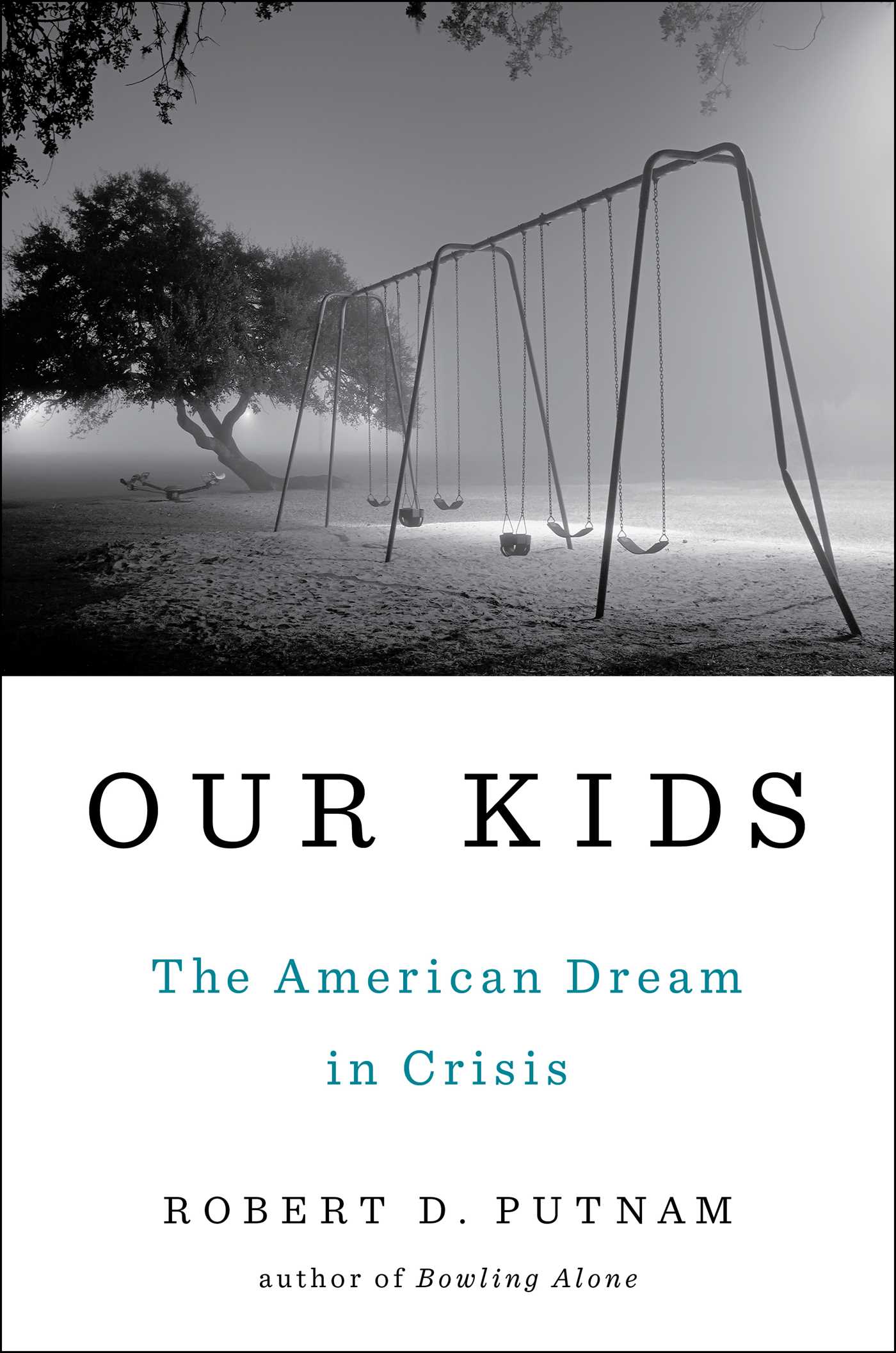Robert Putnam thinks the USA can be fixed. His book, Our Kids: The American Dream in Crisis, released this week, offers a diagnosis of what has gone wrong in his homeland. He wants Democrats and Republicans alike to respond.
Equality of opportunity is supposed to be there for all, so Americans can rise above the station of their parents. It happened to Putnam and many of his high school classmates in Port Clinton, Ohio. It is not happening today in Ohio, or Michigan, or elsewhere in America.
In his book, Putnam documents this opportunity gap. His research team did extensive interviewing, and produced revealing case studies of families. He found that rich kids could expect to reproduce the social standing of their parents. Poor kids were not moving up.
Putnam defines rich and poor by schooling. Rich parents graduated from university, poor parents did not go beyond high school.
Putnam looks at family life as the incubator of social mobility. Put a child in an insecure environment with few resources to fall back on, and that child will struggle to get ahead. Putnam found that, in 2012, some 65 per cent of children spent at least some of their early childhood in a single-parent family. What was once an African-American phenomenon has spread across the U.S.
Putnam wants Americans to understand class, not just race. He wants bridges for kids to cross class divides.
As a political sociologist, Putnam sees growing inequalities, and concludes that they produce diminishing social mobility. But the question of what has produced a precariat — on call, short-term workers, with more than one low-wage job — requires more than identifying the level of educational attainment of the workers.
The standard American economic story excludes the exploitation of workers by capitalist corporations. Good paying manufacturing jobs got outsourced to low-wage countries.
Families are poor because wages get suppressed when unemployment insurance is no longer there, welfare rates and minimum wages are low, and people are forced to work for whatever they can get.
In restoring the American dream, fixing the economy matters.
Putnam caught the public imagination with Bowling Alone, published in 2000. Americans were losing their social ties to their neighbours. They were no longer making social connections through organized activities. Even bowling in leagues was in decline.
After the Second World War, Americans were “joiners.” Meetings, clubs, associations, gathering places provided people with “social capital,” connections with others. But that turned around, he found. By 1997 networks of support were less available than at any time since the1930s Depression. People were increasingly isolated. The help from others needed to prosper and make an interesting life for themselves was dissipating.
In Our Kids, Putnam doubles down on isolation. Now family breakdown is occurring across America. Lone-parent families have lonely kids. Children are left without mentors, advice, and ultimately without the needed “savy” to get ahead.
The American dream is liberal. It is about expanding individual capacities and capabilities. It turns out this only happens when people look out for each other. This happens among the wealthy, not among regular Americans.
Big money has captured democratic politics. Political institutions are broken, making it hard to produce progressive social change.
Left critics find the cause of American social breakdown in footloose neoliberal capitalism eroding welfare and killing communities. The gains of the rich come through impoverishing others.
According to a 2010 Pew Survey, young Americans (18-30) react favourably (43 per cent) to the word “socialist” in the same proportion as to “capitalist.”
If Putnam is a socialist, he keeps it to himself. His ideas about how to fix what is wrong in America are mainstream.
The last chapter of his new book calls for school reform to ensure that mentoring and extracurricular activities are given pride of place. Putnam wants shorter prison terms for non-violent crime to get fathers out of jail earlier. He favours more money flowing to poor families through cash transfers and earned income-tax credits.
Putnam, a Harvard professor, has a personal relationship with Harvard Law graduate U.S. President Obama. The social reformer meets with Jeb Bush, Republican aspirant to the White House, and with Democrat Hillary Clinton as well. His ideas get a hearing, and some are being tried already.
Can the world expect to see the return of the upwardly mobile American? According to Emily Badger who interviewed him for the Washington Post, Putnam wants “inequality of opportunity for kids to be the central issue in the 2016 presidential election.”
Duncan Cameron is the president of rabble.ca and writes a weekly column on politics and current affairs.



